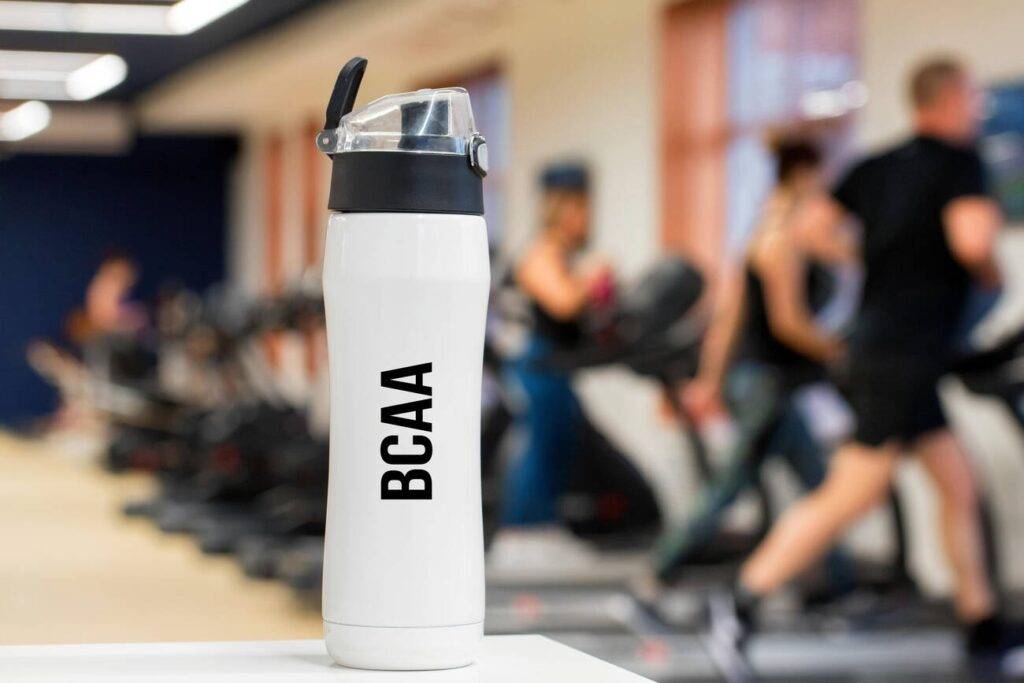
Topic Overview
Branched-chain amino acids (BCAAs) are a group of three essential amino acids. The three essential amino acids include leucine, isoleucine, and valine, which cannot be synthesized or produced by the body and must be obtained through diet or supplementation. They have recently gained popularity as a dietary supplement for athletes and fitness enthusiasts. The benefits of BCAAs for muscle growth, recovery, and exercise performance have been widely studied, and their potential role in weight loss and reducing muscle wasting is also of interest. This comprehensive guide aims to explore the benefits of BCAAs in detail, including their optimal dosage and safety precautions. In this article, we will examine the specific benefits of BCAAs for muscle growth and recovery, how they contribute to reducing exercise fatigue and improving exercise performance, and their potential role in promoting weight loss and reducing muscle wasting also known as muscular atrophy. By understanding the benefits and safety considerations of BCAAs, individuals can make informed decisions about incorporating them into their diet and exercise regimen.
What are the specific benefits of BCAAs for muscle growth and recovery?
BCAAs have numerous benefits for muscle growth and recovery. Firstly, they decrease muscle soreness and prevent muscle loss after working out. Additionally, BCAAs promote muscle growth and help in exercise-induced muscle damage. They also aid fatigue recovery and stimulate protein synthesis, aiding muscle repair and growth. BCAAs have been shown to stimulate an anabolic response, which is beneficial for muscle growth and recovery, improving muscle mass and exercise performance.
Furthermore, BCAAs can help people maintain muscle mass, particularly in conditions where body protein can be lost, such as cancer, by combining a high-protein diet with additional BCAAs, especially leucine. BCAAs are often combined with other products such as protein whey or carbohydrates, which can impact their effect. However, they are still beneficial for muscle growth and recovery when used after resistance exercise. Consuming isolated BCAAs can also reduce muscle soreness. BCAAs also serve as a significant energy substrate for muscles, enhancing their availability during brief starvation and acting as a source of nitrogen for the synthesis of alanine (Alanine (ALA): an α-amino acid that is used in the biosynthesis of proteins.) and glutamine (Glutamine (GLN) is a nonessential amino acid that plays a key role in transporting energy, carbon, and nitrogen between tissues). However, it is worth noting that BCAA absorption from the gut can be inhibited by inflammatory signals while promoting transport into the liver. Additionally, decreased availability of GLN can become rate-limiting for key functions of immune cells, affecting muscle growth and recovery. Overall, BCAAs have several benefits for muscle growth and recovery and are often used in supplements to aid in muscle recovery and building.

How do BCAAs contribute to reducing exercise fatigue and improving exercise performance?
During extended aerobic workouts, central fatigue caused by serotonin can be a factor that limits exercise performance. However, BCAA supplementation has been shown to improve energy metabolism, reduce exercise fatigue, and improve exercise performance. One study found that taking BCAA supplements before exercise led to lower serotonin blood levels, which can help reduce central fatigue. BCAAs can help reduce central fatigue, reduce exercise fatigue and improve exercise performance. BCAA supplements can provide controlled amounts of BCAAs to achieve exercise-related goals. BCAAs can increase blood plasma levels to achieve exercise-related goals and may contribute to reducing exercise fatigue and improving exercise performance in hypermetabolic conditions such as burn, sepsis, trauma, and cancer. Enhanced oxidation of BCAAs during exercise can also contribute to reducing exercise fatigue and improving exercise performance. Some studies have found that decreased fatigue caused improvements in physical performance, while others have not found this to be the case. Nonetheless, BCAAs are believed to reduce exercise fatigue and may improve exercise performance.

What is the role of BCAAs in promoting weight loss and preventing muscular atrophy?
BCAAs play a vital role in promoting weight loss and reducing muscular atrophy. In a study, the BCAA group gained 4.4 pounds (2 kg) more muscle than those given whey protein. This shows that BCAAs may promote muscle growth and help in reducing muscular atrophy, also known as, muscle wasting. Additionally, weightlifters given 14 grams of BCAAs per day lost 1% more body fat over an eight-week study period than those given 28 grams of whey protein per day. This suggests that BCAAs may also contribute to weight loss. Consuming an average of 15 grams of BCAAs from the diet each day may lead to a lower risk of becoming overweight or having obesity. Therefore, it can be inferred that BCAAs may play a role in promoting weight loss and reducing muscle wasting.

Form and Dosage
Tablets are the preferred form of BCAA supplements. A powder form is also available, but most people don’t like the taste when mixed with liquid. Anywhere between 5 grams and 50 grams may be consumed daily. No study has been conducted on the most optimal amount to take daily. In general, it is advised to take BCAAs close to a workout: just before it, during, or immediately afterwards. Also, sipping a BCAA drink during your workout will keep you well-hydrated. BCAAs are typically safe for most healthy individuals to take daily. They may also be taken first thing in the morning after waking up, especially if you intend to exercise on an empty stomach. Before taking this supplement, it’s a wise precaution to talk to a medical professional because he or she will know whether this is useful for you and what dosage would be wise.

Safety and Precautions
BCAAs do not interact favourably with Levodopa (a drug for Parkinson’s disease) and with glucose-lowering medications. BCAAs can lower blood sugar levels, which can be dangerous for persons with diabetes or for those who are prone to hypoglycemia.
Those who are taking anti-inflammatory corticosteroids and thyroid hormone supplements are also cautioned against the unsupervised use of BCAAs. This is one of the reasons why it is worth mentioning that you MUST talk to a health professional before starting a course of treatment. Even on a calorie-controlled diet, BCAAs can help you to retain muscle mass, and considerable research has been ongoing to show that this is one of the most effective means of building muscle mass, used by people not only in competition but also in circumstances where a patient needs something that is fast acting. Given that there is no real problem digesting the product, it means that it goes to the places where it is needed right away.
One thing that is important to know is that BCAAs are not produced within the body unless the diet is balanced. These come from what you eat, and if you are working out, these help in muscle growth and your exercise routine. However, if you find yourself suffering any kind of loss of coordination, you must stop taking BCAAs immediately. These are only taken for a limited period of less than six months. Do read the instructions very carefully.


